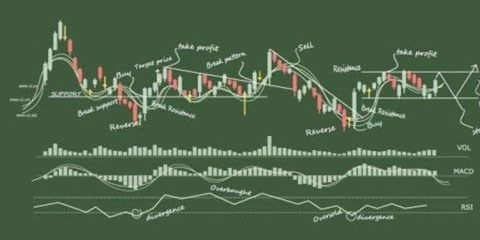Brokerages earn "payment for order flow," typically in the number of fractions of a cent per share, when they send their clients' trade execution orders to a certain market maker or exchange. Compensation for facilitating trades in order flow is frequent in the options market and is becoming more prevalent in the equities market.
Payment for Order Flow: An Overview

Due to the expansion of exchanges and computerized communication networks, trading stocks and options has grown increasingly intricate. Even though Bernard Madoff was an early adopter of the practice of payments for order flow , PFOF is entirely lawful so long as both parties to the transaction meet their obligation of best execution for the client who initiated the trade.
This requires, at the very least, a bid that doesn't come in lower than the National Best Bid and Offer. Brokers must also record their steps to verify that the PFOF transaction price was the best possible across all accessible order books.
Compliance With PFOF Rules And SEC Requirements
Despite a broker's duty to provide the best execution, the SEC has recognized that payment for order flow "may raise issues about whether a business is performing its requirement of best execution to its customer."
An erosion of investor confidence in the financial markets is a possible result of these worries. The SEC mandates that brokers make their rules regarding this matter public. Since 2005, when Regulation NMS was enacted, they have been required to declare their financial interactions with market makers publicly.
When you start an account again each year, your broker must tell you whether or not it gets compensation for forwarding your trade orders to third parties. In addition, brokerage clients can request payment information for individual trades from their brokers, a process that can take anywhere from a few days to several weeks.
SEC Rule 605 and Rule 606: Recent Changes

Broker-dealers must provide two reports to customers by SEC Rules 605 and 606. In 2005, the SEC made it such that companies had to file these reports. There have been modifications to the structure and reporting standards in 2018 and beyond. A working group of brokers and market makers was formed to standardize the reporting of order execution quality.
The Financial Information Forum believes that Rule 605 and Rule 606 reports do not give enough information for retail investors to evaluate how successfully a broker-dealer fills a retail order to the national best bid or offer at the time the executing broker-dealer received the order.
Possible Gains From PFOF
Brokerages too small to handle high volumes of transactions might save time and money by sending part of their orders to market makers. Competition may require brokers who get PFOF income to reduce prices and fees for their clients.
However, these gains may be nullified if the poor execution of PFOF costs consumers money. Individual investors might get cheaper rates through PFOF on occasion, according to a study from the SEC in 2020. 10 Among PFOF's purported benefits are more liquidity and the elimination of trading commissions.
Complaints About The Order Flow Payment Model
PFOF has historically been a divisive procedure. It has been shown that several businesses that advertised commission-free trading in the late 1990s directed client orders to unscrupulous market makers.
For most equities, the narrowest spread was 1/8 of a dollar, or $0.125, in these last days of fractional pricing. Option order spreads were significantly larger. Traders learned that not all free trades are created equal and that not always receiving the best price when an order is completed might result in a significant loss.
Tendencies in Equity PFOF
New York investment bank Piper Sandler & Co.'s managing director Richard Repetto wrote a study that analyzed data from brokers' Forms 606 and 611.
Repetto narrowed their broker emphasis on Charles Schwab, TD Ameritrade, E*TRADE, and Robinhood for the second quarter of 2020.
Repetto stated that the second quarter saw much larger payment for order flow than the first quarter due to increased trading activity. Options compensation was higher than equity compensation.
Final Verdict
The commission arrangements of brokers have recently undergone widespread changes. Many of them will execute equities orders at no cost to the customer. Therefore, compensation for generating orders has become an important income stream.
The main issue with PFOF for ordinary investors is the possibility that their brokerage is favoring one market maker over another when routing orders. Infrequent or low-volume traders may not see the consequences of their brokers' PFOF policies.




